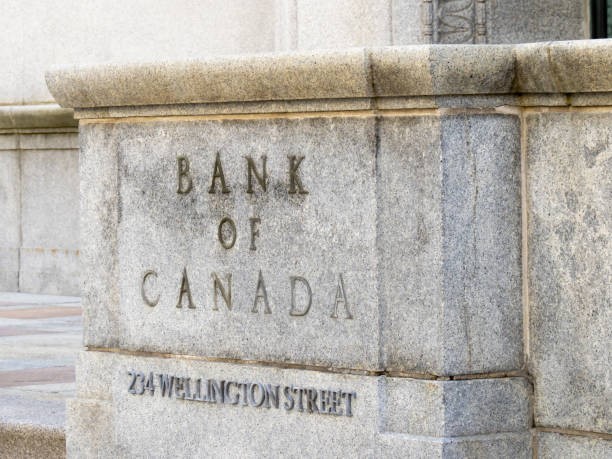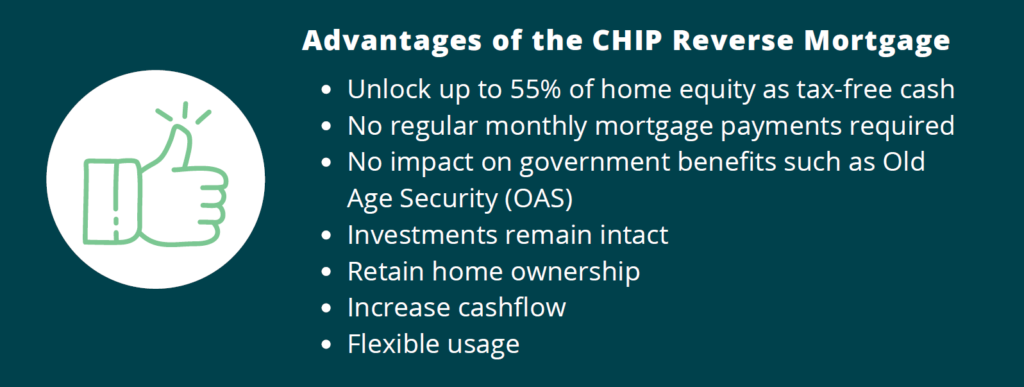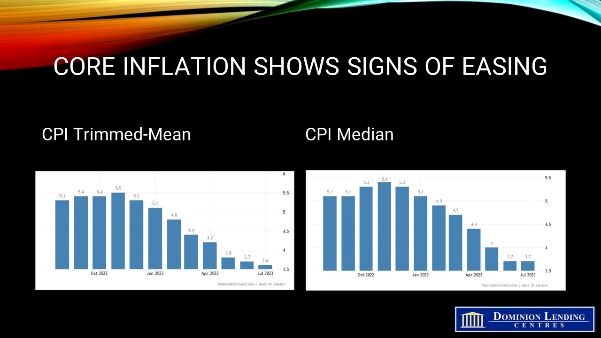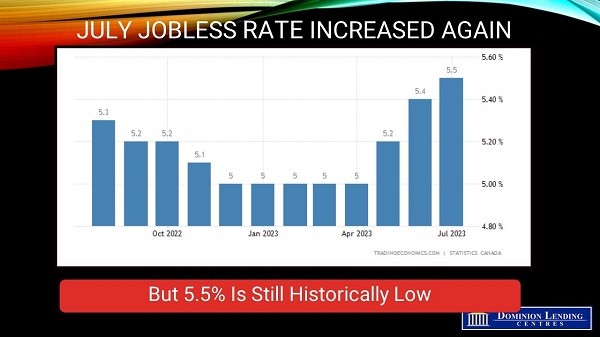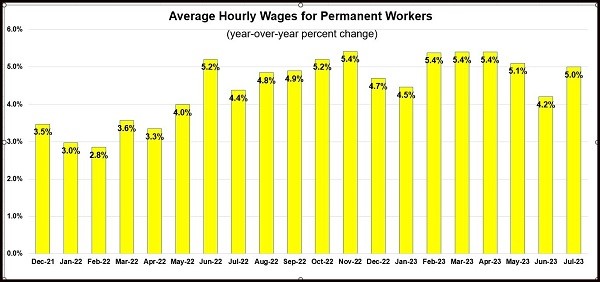This month we are covering what you need to know about converting your basement into an income suite, plus we have some fun summer BBQ tips! Also, hear the economic forecast straight from our Chief Economist, Dr. Sherry Cooper!
Converting Your Basement to an Income Suite
With the current interest rates and economic scenarios, many Canadians may be looking for ways to bring in some extra cash. One option for this is to put your home equity to work and consider renovating your basement into a legal income suite!
You can do this by using a secured credit line (home equity line of credit or HELOC) to help fund the upfront cash to make changes to your home.
A few things to consider before you invest in renovating to create an income suite include:
Zoning: Before looking into doing anything with an income suite, always double-check if you are zoned accordingly for a smooth renovation. If your zoning does not allow for secondary suites, see if you can rezone.
Local Regulations: Depending on your location, there may be particular regulations that you need to follow or be aware of regarding your suite.
A few examples of how the regulations can differ between provinces or cities include:
- In Coquitlam, you cannot have a suite that is more than 40% of the main house floor plan. You are also required to offer a parking spot for tenants.
- In Kelowna, you can only have one secondary suite and the home must have an “S” designation.
- In Calgary, updated zoning legislation has now made it easier to add income suites.
- Toronto has also proposed reforms that will make it easier to add suites.
- In Montréal, anyone carrying out a project involving the addition of at least 1 dwelling and a residential area of ??more than 450 m² (equivalent to approximately 5 dwellings) must enter into an agreement with the City of Montréal in order to contribute to the supply of social, affordable and family housing. It can be a new building, an extension, or the conversion of a building.
Visit the official municipal websites or consult local building departments to obtain accurate and up-to-date information on the rules and requirements in your area BEFORE getting started.
Insurance & Legal Considerations: Before adding your secondary suite, ensure that you have proper insurance coverage or the ability to add additional coverage to protect both the primary residence and suite. In addition, you will want to consult a lawyer and draw up a tenant or rental agreement for any potential tenants. Ontario has a mandatory standard lease agreement that all landlords must use.
Unit Layout and Design: If the zoning and regulations in your area allow you to build an income suite, the next steps are to look at the suite layout and dimensions. Confirm any size restrictions or minimum ceiling height requirements as you are laying out the design for the unit.
The unit should have, at minimum the following:
- A separate parking space for the renter.
- A separate entrance, kitchen, bathroom, and living/sleeping areas.
- Ventilation and soundproofing measures to enhance livability.
- Consideration of natural light.
- Interlink smoke detectors for primary and secondary residences.
- Separate, independently-controlled ventilation and heating system.
- Proper drainage, sewage connections, and utility separations.
- Outlets, circuits, and lighting that meet electrical code requirements.
Ensure that however your income suite is designed, you are hiring the appropriate building, plumbing, and electrical experts to ensure your suite is up to code and avoid any potential disasters.
Building & Trade Permits: Once you have confirmed that you are properly zoned and able to add an income suite and understand all the regulations for your area, you will want to draft your blueprints and submit a permit application, along with the fee, before you get started. For instance, in B.C. you are required to have a Building Permit for any suite to be considered legal.
IMPORTANT: Even if you are not required to have a building permit, it is important to get these permits for other aspects including insurance coverage should anything happen. Having a building permit will help protect your investment.
In addition to your building permits, you will need to get permits for any plumbing, electrical, and gas renovations prior to beginning your work.
Inspections & License: Once you have your permits and have begun construction, make sure you understand what inspections are required throughout the process and you schedule them accordingly with local authorities to ensure compliance with building codes, fire safety standards, and health regulations.
If the work meets all requirements, your suite will be approved. The last step is determining if you need a business licence. This is not required if your family (parents, children, etc.) will be living in the suite. In Vancouver, for example, if you intend to rent out your suite long-term, you DO need a license. Be sure to check any rules on this in your area.
Beyond the ability to earn extra income per month, there are a few additional government incentive programs when it comes to suites including:
- First Nations: If you live on a First Nations reserve, you may be eligible for federal funding that will provide up to $60,000 to help you build an inexpensive secondary suite rental linked to your principal home. If you live in a northern or remote area, this amount is increased 25%. This is a 100% forgivable loan that is not required to be paid back assuming all guidelines are followed.
- Residential Rehabilitation Assistance Program (RRAP) – Secondary and Garden Suites: This program is open to all First Nations or individual First Nation members, particularly those who own a family home that can be converted to include a self-contained suite for a senior or adult with disability.
- Multigenerational Home Renovation Tax Credit: A credit for a renovation that creates a secondary unit within the dwelling to be occupied by the qualifying individual or a qualifying relation. The value of the credit is 15% of the lesser of qualifying expenditures and $50,000.
- British Columbia: Beginning in early 2024, BC homeowners will be able to access a forgivable loan of 50% of the cost of renovations, up to a maximum of $40,000 over five years, for income suites.
- Ontario: There are multiple secondary suite programs throughout Ontario, depending on your region. These loans provide $25,000 to $50,000 in funding and are forgivable assuming continuous ownership for 15 years.
While it is important to look online and do your research. Your best resource will be visiting local authorities at the “City of” to confirm that you completely understand the considerations before moving forward with implementing an income suite.
Best Summer BBQ Tips
It’s the season of outdoor parties and a summer BBQ is the perfect way to enjoy time with friends and family!
For some tips on how to make this year’s get-together your best one yet, check out my list below:
- Set the Mood: String up fairy lights, plug in a radio with some of your favourite tunes in the background, put out a lawn rug, and throw a fresh tablecloth over your outdoor dining area. A few quick items can really spruce up the yard and make it feel ready for guests!
- Don’t Forget to Play! If you’re hosting an adult-only BBQ, setting up a table for a card game or getting out your cornhole boards can be a great way to pass the time and get in some laughs. If you have children in attendance, consider setting up a lemonade stand or fill some water balloons for an extra splash!
- Choose Your Mains: It can be easy to get carried away grilling steaks, fish, chicken, hot dogs, burgers – you name it! For a more successful party, choose two options. Maybe you go with hot dogs and veggie burgers, or perhaps fish and chicken. Choose items that cook well on the BBQ together and suit the tone of your get-together.
- Have Drinks on Hand: Set up a table with pitchers of fun summer drink concoctions (alcohol optional!) or consider filling a kiddie pool or wheelbarrow with ice to keep those beers chilled all afternoon.
- Put Out Snacks: This may seem like a no-brainer, but having a table filled with fun ‘grazing’ snacks can help stave off any stress about perfectly grilling your meals! Try a veggie and dip tray, fruit shish kabobs, or a charcuterie board of cured meats and cheeses.
Economic Insights from Dr. Sherry Cooper
The Bank of Canada remains staunch in its battle against inflation, utilizing its primary weapon—the overnight policy rate—which has escalated from 25 basis points to 500 bps since March 2022.
This historically low overnight rate was a direct consequence of the COVID-19 pandemic and implementing measures to cushion the economic impact of the lockdowns. These initiatives included reducing the policy rate from 1.75% to 0.25%, postponing mortgage payments, providing financial support to businesses for workforce maintenance, and compensating individuals for home quarantine. These measures, amongst others, reignited the economy upon the widespread availability of the vaccine.
The Canadian economy bounced back robustly once commercial activities resumed. Employment rates rocketed, and unemployment plummeted to all-time lows. However, the recovery faced a setback when Russia invaded Ukraine in February 2021, which caused supply constraints, and substantially increased energy and food. Despite the soaring inflation, central banks were initially hesitant to take action.
In hindsight, we now know the necessity for initiating interest rate hikes by mid-2021. Instead, this action was postponed until March 2022.
Furthermore, the Bank of Canada and other significant central banks inundated the financial system with surplus liquidity by purchasing government bonds. This quantitative easing tactic made capital not only more affordable but also readily available, sparking an unprecedented boom in the housing market.
Many exploited the record-low rates of 2020 and 2021 by opting for variable-rate loans due to their lower costs. At its zenith, variable-rate mortgages (VRMs) accounted for 57% of all loan originations. These loans are due for renewal in 2025 and 2026. However, most of these loans have reached their trigger points and are negatively amortizing, barring substantial lump-sum payments by borrowers.
For those who chose adjustable-rate loans, monthly payments increased with every Bank of Canada rate hike. Delinquency rates, for the time being, remain impressively low within the prime space, though they are beginning to rise among alternative lenders.
After reaching a zenith of 8.1% in June 2022, inflation has slowed to 2.8% in June of this year. Regardless, the Bank of Canada continued its trend of interest rate hikes following a brief hiatus in its last two meetings, with speculation of another hike in September. The Bank has provided a buffer period for itself by projecting a return to the 2% target inflation rate by mid-2025—a considerably more extended period than initially anticipated.
The recent rate hikes and moderated expectations appear prudent considering the Bank’s preference for mitigating inflation over preventing a recession. It is improbable that the Bank of Canada will reduce interest rates this year.
Although the policy rate is projected to decrease in the first half of 2024, it is not expected to return to the pre-COVID level of 1.75%. Negative real interest rates (the actual market rate minus the 2% inflation rate) are unlikely to occur, barring a global economic meltdown.
Angela Calla is an 19-year award-winning woman of influence which sets her apart from the rest. Alongside her team, Angela passionately assists mortgage holders in acquiring the best possible mortgage. Through her presence on “The Mortgage Show” and through her best-selling book “The Mortgage Code“, Angela educates prospective home buyers by providing vital information on mortgages. In light of this, her success awarded her with the 2020Business Leader of the Year Award.
Angela is a frequent go-to source for media and publishers across the country. For media interviews, speaking inquiries, or personal mortgage assistance, please contact Angela at hello@countoncalla.ca or at 604-802-3983.
Click here to view the latest news on our blog.






